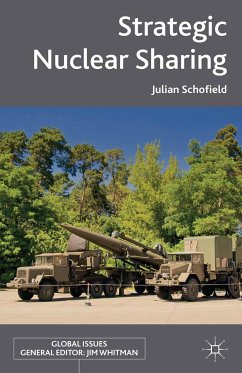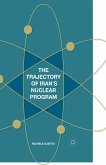The sharing of nuclear weapons technology between states is unexpected, because nuclear weapons are such a powerful instrument in international politics, but sharing is not rare. This book proposes a theory to explain nuclear sharing and surveys its rich history from its beginnings in the Second World War.
Dieser Download kann aus rechtlichen Gründen nur mit Rechnungsadresse in A, B, BG, CY, CZ, D, DK, EW, E, FIN, F, GR, HR, H, IRL, I, LT, L, LR, M, NL, PL, P, R, S, SLO, SK ausgeliefert werden.
Hinweis: Dieser Artikel kann nur an eine deutsche Lieferadresse ausgeliefert werden.









